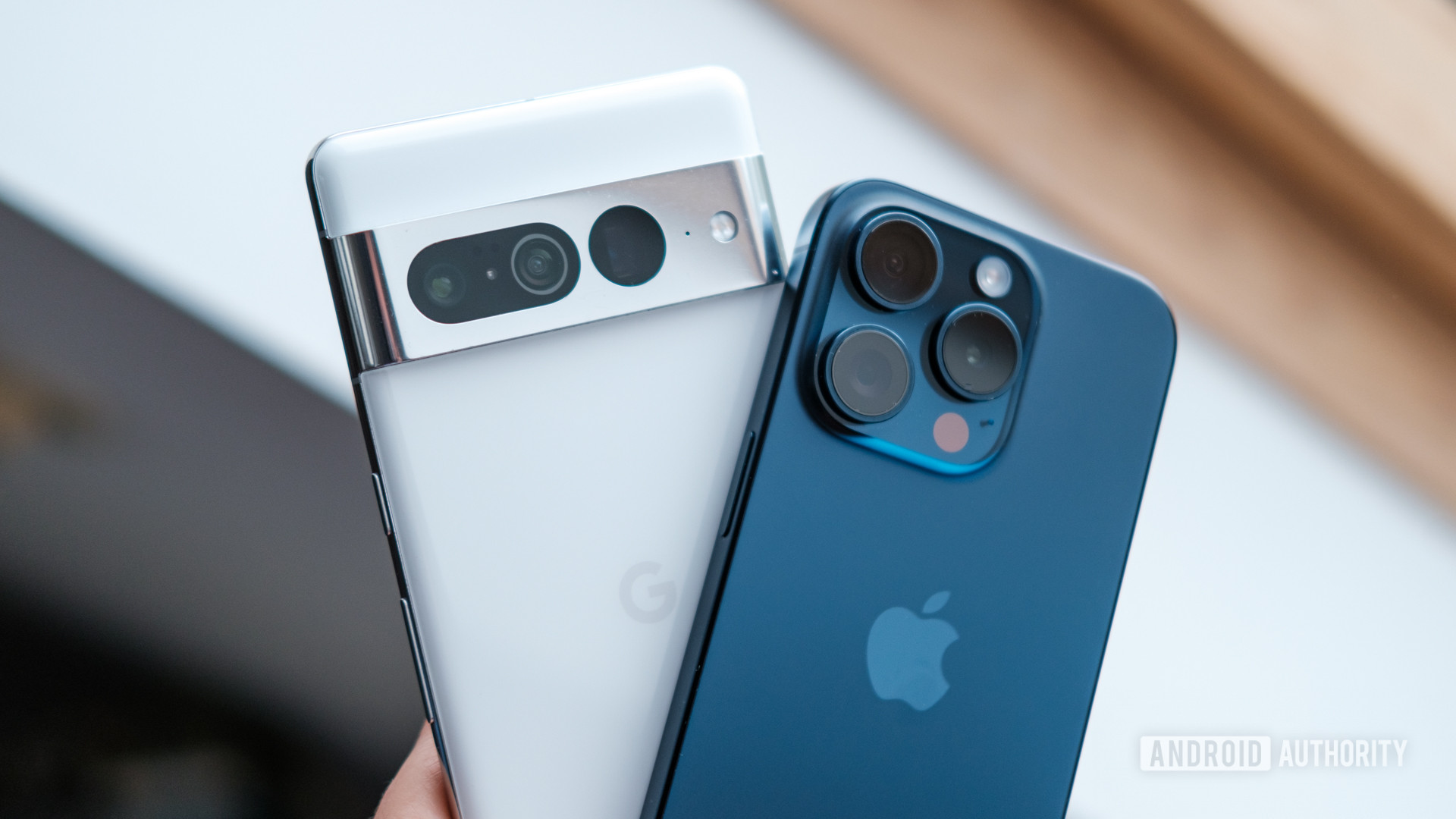People Keep IPhones Longer Than Android Phones. Here Are Theories As To Why.

Robert Triggs / Android Authority
TL; doctor
- A recent report shows that iPhone users keep their phones longer than Android users.
- One theory about why this is happening is that the larger selection of Android phones creates more upgrade options.
- Reports claim that iPhones can be more durable than Android phones, but we don't believe them.
The US population is split right down the middle when it comes to mobile operating systems. One half of the Pi holds your iPhone and the other half holds your Android phone. However, it is about use, not sale. Consumer Intelligence Research Partners (CIRP) revealed last week that Android smartphone sales in the U.S. far exceed iPhone sales every year.
Although Android and iOS usage in the United States is split 50/50, people buy more Android phones than iPhones, indicating that Android users update their phones more often than iPhone users. Apparently, a recent CIRP report shows this to be the case.
See the table below for more details.
Updates for iPhone and Android users
The diagram above is a bit confusing, so let's break it down. The first blue part shows that 10% of iPhone owners kept their phone for a year or less before switching. This means that 90% of iPhone users keep their phone for more than a year. Meanwhile, 23% of Android users fall into this category, more than double. Even if they lose 1-2 years, Android users will update faster.
While this is interesting, the real question should be why. Why do Android users quickly upgrade their phones while iPhone users keep what they have?
In the past, the easiest explanation was software updates. In most cases, iPhones have been updated to new iOS versions for more than five years. In contrast, Android phones of the past were lucky to get two years of support.
However, this is no longer the case. Samsung, the world's largest smartphone maker, has been supporting almost all of its phones for four years. This has prompted other vendors to make similar promises, and Google recently outdid them all by announcing seven years of mandatory software support for the Pixel 8 series.
CIRP has several theories as to why this might actually be happening.
Theories as to why this might happen
The first theory presented by CIRP is that because Android phones are, on average, cheaper than iPhones, owners are more likely to upgrade. It's an interesting theory, but when you consider that some of the best-selling Android phones in the US cost as much as iPhones, not to mention the many sophisticated phones that are becoming more and more popular every year, they are incredibly expensive. expensive
Another theory is that iPhones are more durable than Android phones. However, we wouldn't buy it for a second. Today, Android phones and iPhones are basically made of the same material. These are just glass sandwiches with a metal rim. The fact that cheap Android devices are made of plastic means that most Android phones are more durable than iPhones, as they won't hurt your back if you drop them.
The best theory presented by CIRP is that privileged resources encourage Android users to upgrade more often. In other words, with only a handful of iPhones released each year, iPhone users have only one big incentive to upgrade every year. However, Android users are forced to switch every year not only from their chosen brand but also from competing brands. More bait = more updates.
What are your theories? Write them in the comments and let us know.

